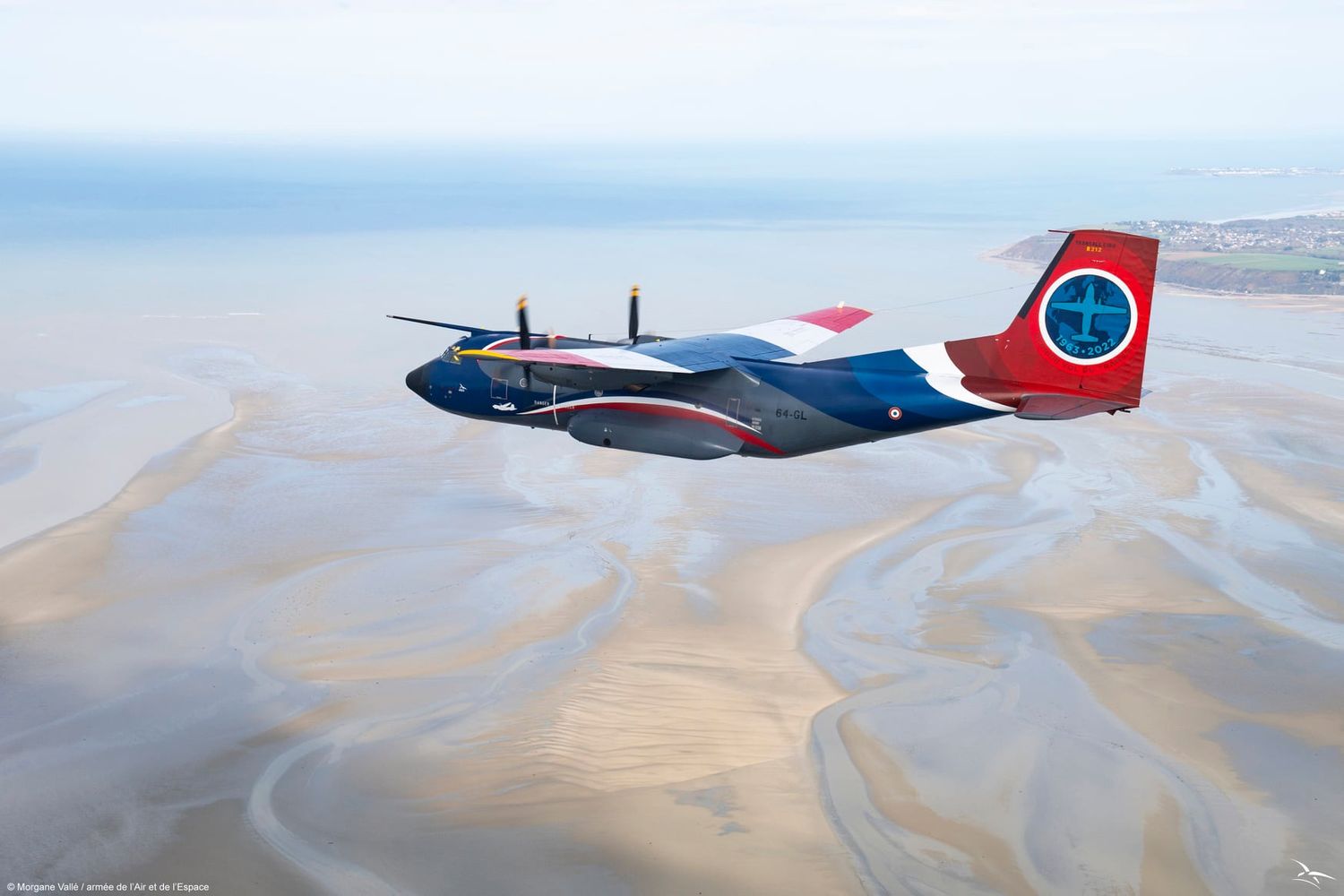After more than half a century of good and loyal service, the C-160 Transall tactical transport aircraft of the French Air and Space Force will pass through 24 French cities on its farewell tour.
Painted with a special livery for such an important occasion, the C160 Transall begins the first stage of its farewell tour scheduled to visit 24 cities over 20 days.
On the first day, the legendary aircraft took off from the Evreux base, home of the 64th Transport Wing that operated this model, to reach the Lann-Bihoué air base via Mont Saint-Michel, a historic site where special unit commandos often conduct parachute drop training.
Upon completion of its tour, the French aircraft will be the last Transall cargo aircraft to be retired from active service, as other users of the model had already decommissioned them. Germany, for example, retired its last C-160 from service in December 2021, for which it also organized a farewell tour with an aircraft sporting a colorful livery.
C-160 Transall, a little bit of history
The Transall (short for Transporter Allianz) originated in the 1950s, when it became imperative to replace the old piston-engine powered cargo aircraft, whose shortcomings had been exposed during the Korean War, with new generation aircraft powered by modern turbines, in this case, Rolls Royce Tyne turbines.
The particular requirement that gave birth to the Transall was the need to replace the piston-powered Nord Noratlas transports operated by the French (Armée de l’Air) and German (Luftwaffe) air forces.
To encourage Franco-German industrial cooperation, the consortium, «Transporter-Allianz» or Transall, was formed in January 1959 between the French company Nord Aviation and the German companies Weser Flugzeugbau and Hamburger Flugzeugbau (HFB), to design and build the new transport.
The new aircraft was required to carry a 16,000 kilogram (35,000 lb) load over a distance of 1,720 kilometers (930 nmi; 1,070 mi) or an 8,000 kg (18,000 lb) load over 4,540 km (2,450 nmi; 2,820 mi ) and to be able to operate from semi-prepared runways.

The first contract, delayed by Lockheed’s attempts to sell the C-130 Hercules to Germany, came on September 24, 1964. It was for 160 units, of which 110 were for Germany and 50 for France. The construction work was divided between the two aircraft industries, according to the percentage of orders placed by each nation.
The first production aircraft began to be delivered in 1967. In addition to these first batches, there were nine C-160Zs for the South African Air Force, the first export customer.
France then placed a second order for 29 units of an upgraded variant (called NG) with increased internal fuel, structural improvements and upgraded avionics. Indonesia acquired 6 units of this improved version.
In 1971 Turkey became a new user of the C-160, acquiring 20 second-hand units from the Luftwaffe.
Not all Transalls are gone yet
Although as transport aircraft it is no longer used by any air force, being replaced by C-130 Hercules and CN-235 or C295, there are still some special mission examples that will continue flying for some more time.
The French Air and Space Force has 2 C-160G Gabriel, a modified variant of the Transall for electronic signals intelligence (SIGINT) missions. Their withdrawal from service had been scheduled to coincide with that of their cargo sibling, as their replacements are on their way.

However, after the Russian invasion of Ukraine, the Gabriels are likely to continue flying until 2025, when the first replacement Dassault Falcon 8X SIGINT should arrive.
Turkey also modified one of its C-160s for electronic intelligence missions, which will soon be replaced by a pair of Challenger 605s, suitably modified to perform the same missions.
The first of the aircraft had already arrived in Turkey during 2020, to be modified at ANSELSAN’s facilities to its new role. If these works are not concluded yet, it is quite possible that Turkish Air Force intelligence Transall is flying quite a lot over the Black Sea these days.










Comentarios
Para comentar, debés estar registrado
Por favor, iniciá sesión